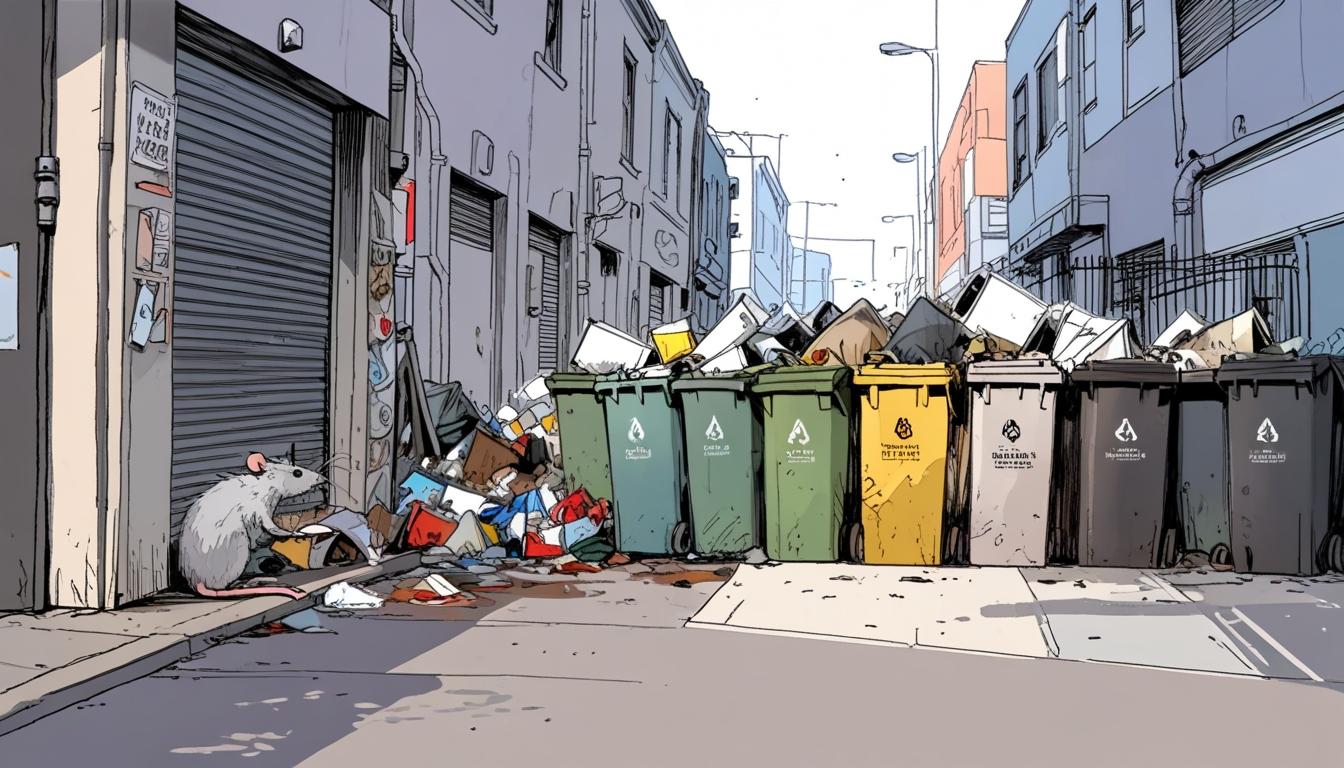Birmingham is currently facing a significant public health concern as a result of ongoing industrial action by refuse collection workers, which has left approximately 17,000 tonnes of rubbish littering the streets. The strike, initiated by members of the Unite Union on March 11, has stemmed from disputes over pay and job losses. In response to escalating concerns regarding public health and environmental contamination, Birmingham City Council declared a major incident last week.
The declaration allows the council to implement a contingency plan aimed at collecting waste, although efforts have been hindered by picket lines preventing access to necessary vehicles. Councillor John Cotton, the leader of Birmingham City Council, highlighted the seriousness of the situation, stating, "It’s regrettable we have had to take this step, but we cannot tolerate a situation that is causing harm and distress to communities across Birmingham." According to council officials, the strike has severely limited waste collection operations, leading to complaints from residents regarding prolonged rubbish accumulation.
Speculations from experts have emerged regarding the potential health consequences of the unprecedented rubbish situation. Infectious disease expert Dr Elizabeth Sheridan articulated fears that the combination of vast amounts of waste and rising temperatures could increase the risk of diseases carried by rodents, particularly Leptospirosis, also known as Weil's disease. In an interview with The Telegraph, she explained, “There’s a risk related to rat exposure, like Weil’s disease, which comes from rat urine… If anyone is handling stuff where rats may have been, they should wear gloves and wash their hands.”
Moreover, experts have raised alarms about the size of the rats that have been spotted amid the rubbish—a worrying development compared to the usual urban rodent population. Mat Stewart, a waste management expert, noted that sightings of "cat-sized rats" are becoming increasingly common alongside numerous health threats. According to various reports, the rising rat population could expose residents to infections carried by these animals, as the conditions have created a “banquet” of food for them.
Professor Paul Hunter from the University of East Anglia described Leptospirosis as "a very nasty disease which can cause liver damage that can be fatal," adding that the rate of infection is likely to rise if the rubbish crisis persists. He warned that as more rats have increased in the area, so has the risk to human health.
Lee Maddocks, director at Richards Pest Control, warned of climate and food conditions contributing to the physical growth of these rodents, indicating that it’s not unusual for rats to grow larger than average when their food supply is ample. He stated, "Rats are getting bigger... This is largely due to increased access to high-calorie food waste, warmer winters, and competitive behaviours like cannibalism."
Furthermore, public discussions have touched on the potential risks to children and pets due to aggressive interactions with these oversized rodents, which may feel threatened in their struggle for resources among the rubbish. As local residents call for immediate action and resolution to the waste collection problems, Birmingham City Council officials are attempting to navigate the labour disputes while addressing public health threats.
In summary, Birmingham's refuse workers' strike has not only led to an accumulation of rubbish on the streets but has also catalysed significant health concerns regarding the burgeoning rat population. These developments have caught the attention of public health experts and local authorities alike, as the city grapples with the dual challenges of industrial action and public health risks.
Source: Noah Wire Services
